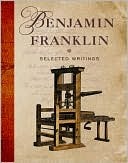- Bible
- Read the Bible
- Bible Versions
- Verse of the Day
- Reading Plans
- Verses by Topic
- Books of the Bible
- Bible Images
- Study
- Commentaries
- Concordances
- Dictionaries
- Encyclopedias
- Sermons
- Bible Atlas & Maps
- BP Wiki
- Devotionals
- Today's Devotionals
- Light of the World
- All Devotionals
- Inspirational Quotes
- More
- Picture Quotes
- Videos
- Inspirational
- Bible Study
- What The Bible Says
- Bible Q&As
- Daily Bread
- Bible by Genre
- Bible Stories
- Random Bible Verse
- Community
- Store
Selected Writings
by Benjamin Franklin
Writer, Statesman, World-traveler, Publisher, Inventor, Philosopher, Printer, Diplomat, Newspaper editor, Scientist, Satirist, Pamphleteer, Social critic. Of all America's illustrious Founding Fathers, Benjamin Franklin was the one who most readily wore the mantle of the Renaissance Man. His interests were remarkably eclectic, and his talents extraordinarily diverse. A signer of the Declaration of Independence, a founder of the subscription library system, inventor of bifocal eyeglasses and the lightning rod, and an originator of the city of Philadelphia's first fire department. Franklin might have gone on to a distinguished career in any of the disciplines for which he showed enthusiasm. Today, we remember him as a writer of some of the wittiest and most stimulating essays and articles published during our nation's Colonial era, all informed by his boundless intellectual curiosity and open-minded spirit of inquiry.
BUY NOW
Hardcover, 272 pages
Published April 15th 2010 by Sterling Publishing (first published January 1996)
© 2026 Bibleportal.com All rights reserved.

Benjamin Franklin was an important conservative figure in the American Restoration Movement, especially as the leading antebellum conservative in the northern United States branch of the movement. He is notable as the early and lifelong mentor of Daniel Sommer, whose support of the 1889 Sand Creek Declaration set in motion events which led to the formal division of the Churches of Christ from the Disciples of Christ in 1906.
According to contemporary biographies "His early religious training was according to the Methodist faith, though he never belonged to any church until he united with the Disciples."
In 1856, Franklin began to publish the ultra-conservative American Christian Review, which he published until his death in 1878. Its influence, initially considerable, was said to have waned following the American Civil War. Franklin undertook a rigorous program of publication correspondence, and traveling lectures which took him to "many" U. S. states and Canada.
Franklin's last move was to Anderson, Indiana, where he lived from 1864 until his death.
... Show more